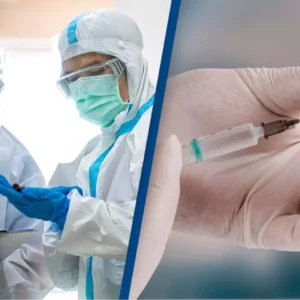Joe Donor, a 52-year-old sperm donor, has become known as “Britain’s most prolific dad” after helping to father 170 children over the last 13 years. However, this unique journey has had a significant impact on his personal life and relationships.
Reflecting on his situation, Joe shared that he would continue donating until he meets a woman who truly captures his heart. He said he would only stop if he finds someone who “sweeps him off his feet.” Despite the complexities it has introduced into his personal life, Joe remains dedicated to helping others start families.
He explained, “While many women want my child, it means being available at all times—and it’s a rare woman who will accept that in a romantic relationship. I don’t have a partner at the moment. I am hoping I will, one day, meet that special someone who can accept me for who I am—someone who wants to have children and can accept my scores of children I already have.”
However, not all women are enthusiastic about Joe’s unique hobby. Some have questioned why he doesn’t simply donate blood like everyone else. Joe’s response is that if he does meet the right woman, he would consider giving up sperm donation but would want to provide additional siblings to those he has already helped.
Joe clarified that he doesn’t profit financially from sperm donation, and it can even be financially burdensome for him. He often struggles to make ends meet and is grateful if he can cover his expenses while helping others fulfill their dreams of becoming parents. He finds motivation in the joy he witnesses when new children are born and the happiness it brings to their mothers.
Joe uses different methods for sperm donation, including artificial insemination (AI), partial insemination (PI), and natural insemination (NI). AI involves shipping sperm to recipients, while PI is a modified form of NI that minimizes intimacy and focuses solely on achieving pregnancy. NI, the old-fashioned method, involves sexual intercourse. Joe is flexible and willing to follow the recipient’s preferred method.
He also provided practical advice for those seeking NI or PI, suggesting that couples plan for conception when the woman is ovulating and make arrangements for childcare and scheduling to create the best conditions for successful insemination.
Despite the negative comments and criticism he sometimes receives, Joe remains focused on the happiness of the women he has helped and their children. He believes that a few negative remarks won’t change his commitment to his unique and altruistic mission.
In conclusion, Joe Donor’s story is a testament to the complexities of balancing a unique hobby with personal relationships. While he has helped many couples become parents, he continues his quest until he finds a partner who can accept his unconventional journey. His dedication to providing happiness to others is truly commendable.




